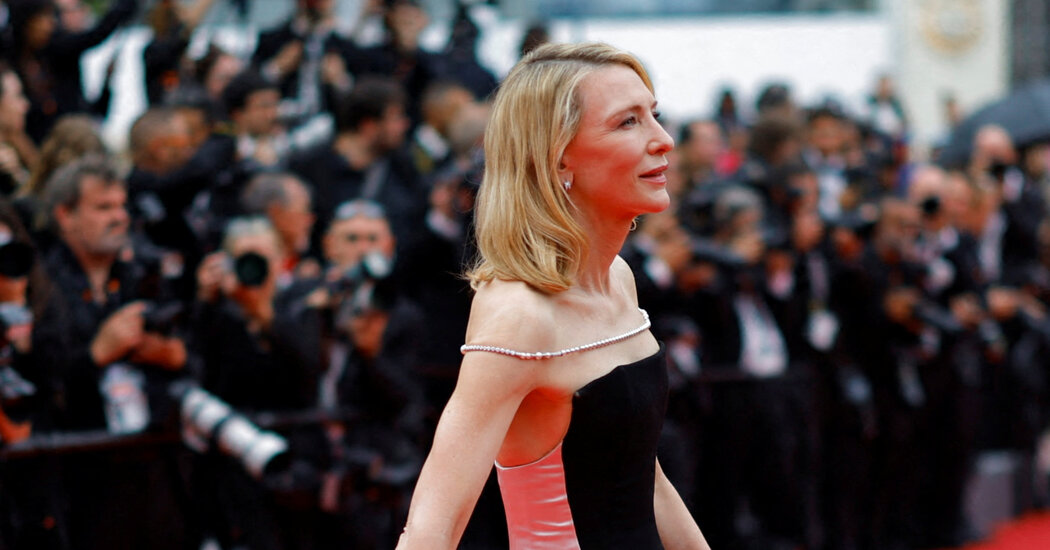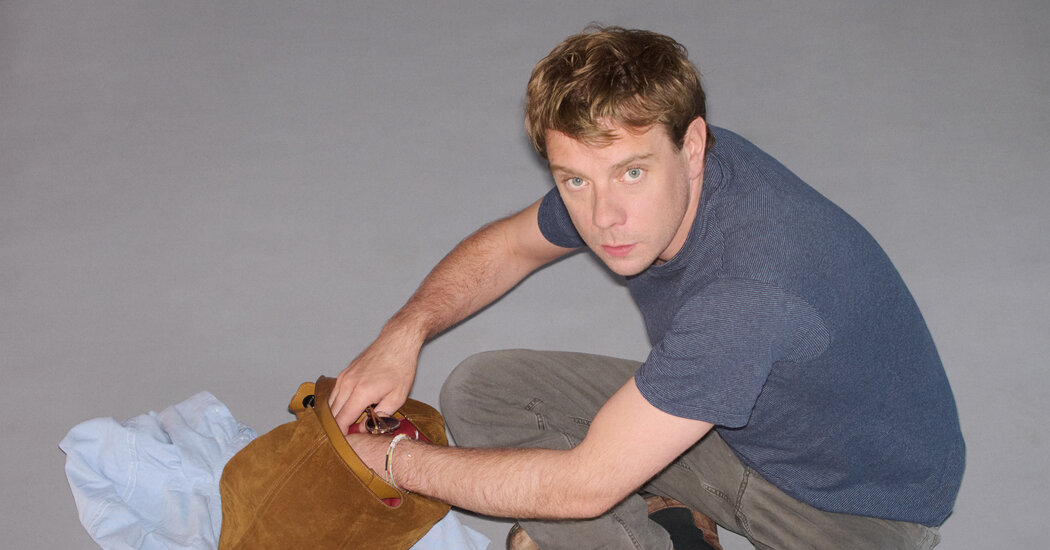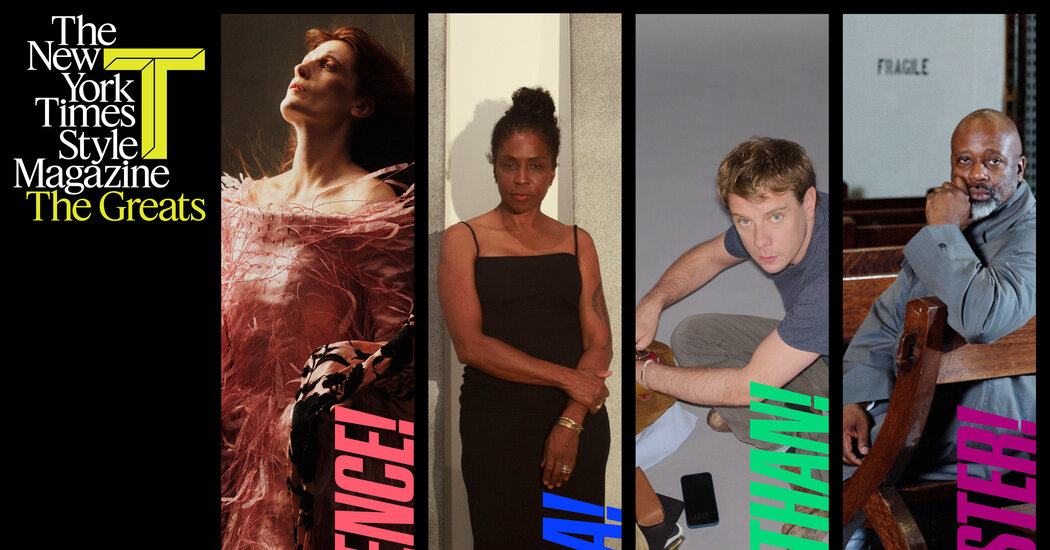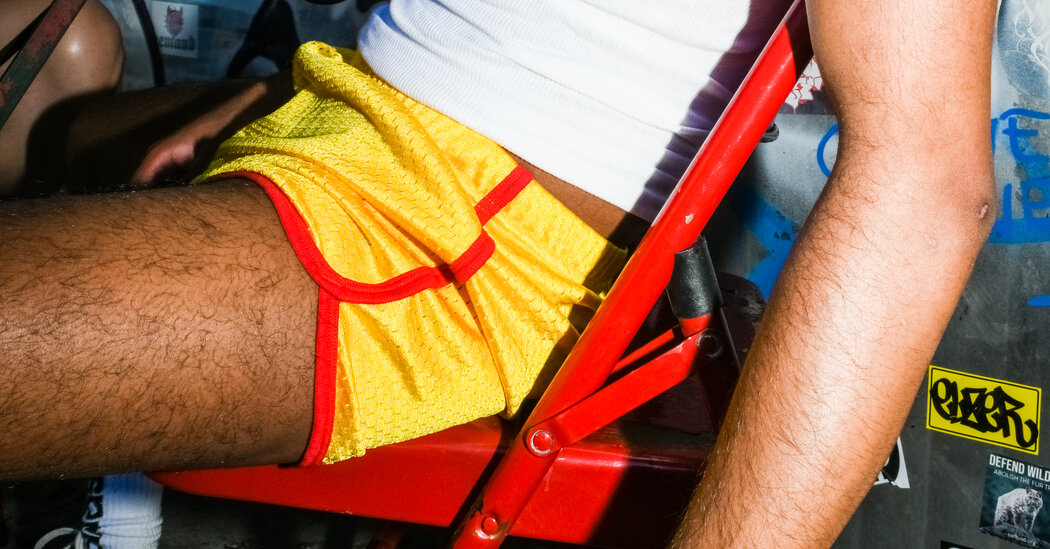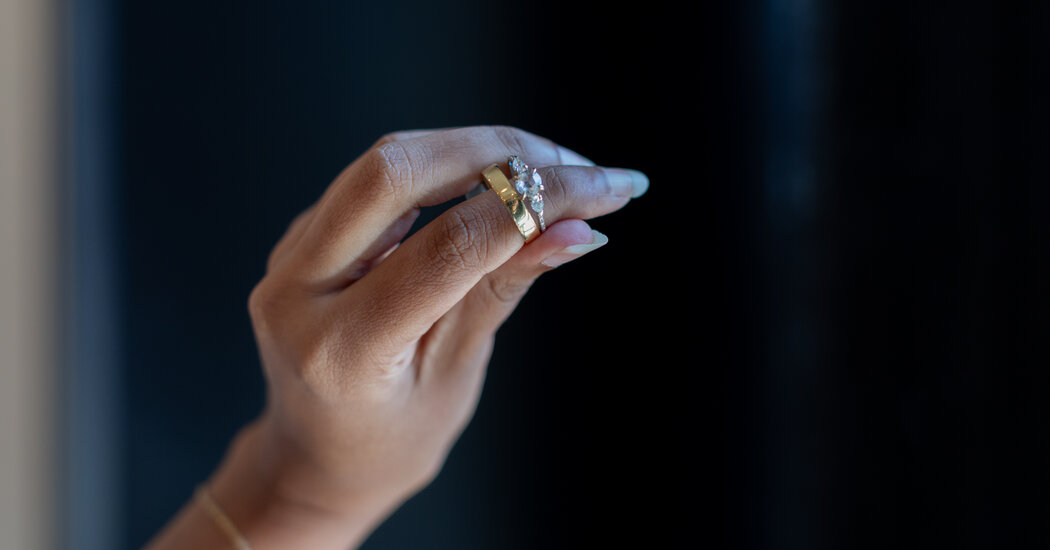Since the start of the Israel-Hamas war, followers of events known for being fashion spectacles — the Oscars, the Met Gala, Eurovision — have watched them become venues for making sartorial as well as political statements about the conflict.
The Cannes Festival in France has not been immune to this trend. Several attendees have used the red carpet on the Croisette to show their support for Israelis or Palestinians during the film festival, with some wearing sashes saying “bring them home,” referring to Israeli hostages taken by Hamas, and others wearing red pins calling for a cease-fire in Gaza.
Off the carpet, the model Bella Hadid ate ice cream near the beach in Cannes wearing a dress made of the material used for kaffiyehs, the scarves long seen as a symbol of Palestinians solidarity and identity.
But those obvious displays have not generated as much buzz as the dress that the actress Cate Blanchett wore on Monday to the premiere of “The Apprentice,” a docudrama about the early life of former President Donald J. Trump.
At first glance the gown — a piece from the designer Haider Ackermann’s one-off spring 2023 couture collection for Jean Paul Gaultier — looked like a simple black dress worn with a pearl necklace across the length of Ms. Blanchett’s bare shoulders.
But as she began to walk the carpet, flashes of other colors emerged: The back of the dress was a pink so pale that it appeared white, and the gown had an emerald green interior lining that Ms. Blanchett repeatedly revealed by lifting its train. The dress had been significantly altered since it appeared on the runway, where it had a knee-length hemline, a lime-green back and a lavender lining.
As photos of the actress spread online, some interpreted her wearing that palette on a red carpet as a tribute to the black, green, white and red Palestinian flag.
Photos of Ms. Blanchett in the dress posted on Instagram by her stylist and her makeup artist received dozens of comments with emojis of the Palestinian flag or a watermelon, a symbol used to show support for Palestinians partly because the fruit has a similar color scheme as the flag.
Ms. Blanchett, who does not have her own social media accounts, has not publicly commented on the dress. Representatives for the actress did not respond to requests for comment for this article; neither did her stylist, Mr. Ackerman, or representatives for Jean Paul Gaultier.
But Ms. Blanchett’s making such a statement would not be totally inconceivable. In November the actress, who is a good-will ambassador of the United Nations’ refugee agency, called for a cease-fire in Gaza while addressing the European Parliament. She also signed a petition circulated in Hollywood demanding President Biden to push for a cease-fire in Gaza.
Then again, the dress was technically pink, black and green; without the red carpet beneath it, the garment alone bears little resemblance to the flag. So people could also be projecting the role of activist onto the actress.
One certainty of the speculation about Ms. Blanchett’s dress: A picture says a thousand words.
Three Independent Designers Give Up Their Labels
Those who have been glued to the red carpets in Cannes may have missed a string of more somber developments that occurred in the fashion industry as the film festival got underway.
On May 13, the day before Cannes began, the designer Roksanda Ilincic in London announced that she was selling the independent namesake label she founded in 2005 to The Brand Group, a company specializing in brand management and development, in order to avert bankruptcy.
On Sunday, the designer Mara Hoffman announced in Vogue that she was shuttering her namesake label 24 years after she started it in New York and months after Ms. Hoffman received an environmental sustainability award from the Council of Fashion Designers of America.
And on Tuesday came the news that The Vampire’s Wife, a British brand whose gothic, retro-glam dresses have earned fans in Florence Welch, Sienna Miller, Sarah Jessica Parker and Catherine, Princess of Wales, was closing after eight years in business.
The challenging wholesale environment — created largely by the collapse of e-commerce retailers like MatchesFashion and the aggressive buying tactics of others — was referenced by both Ms. Ilincic and Susie Cave, the founder of the Vampire’s Wife, in statements each released about the sale and the shuttering of their respective brands.
Rising costs of labor and materials have also made it harder and harder to compete, especially for independent designers, like Ms. Hoffman, trying to produce clothes more sustainably.
As she told Vogue, “If we’re going to have brands like Mara Hoffman that are using everything they can to make some sort of transformation, there have to be different support systems built for it.”
For Brides Who See the Aisle as a Runway
If any trend has guided bridal wear in recent years, it might be the move away from the big white confection that has traditionally been worn as a wedding dress. White pants and jumpsuits have become popular, as have bridal bikinis, bright pops of color and even panty-revealing gowns.
Brides-to-be for whom conventional dresses hold little appeal are exactly the type that Ssense — the website beloved by an achingly hip crowd for its selection of emerging designers and street wear — is targeting with a new bridal collection released this month. Comprising pieces from 17 brands, it includes bridal gloves, hats and other accessories, starting at about $170, and attire that starts at about $500.
Among the clothes are exclusive looks adapted from the recent runway collections of several designers, including a Simone Rocha dress with pink silk roses stuffed in sheer pockets and a matching extra-long hair bow, a cream knit Molly Goddard crop top and full skirt with an accompanying tulle veil, and a powder-pink Sandy Liang mini dress.
In other words: plenty of fashion-forward options in which one could say, “I do.”



